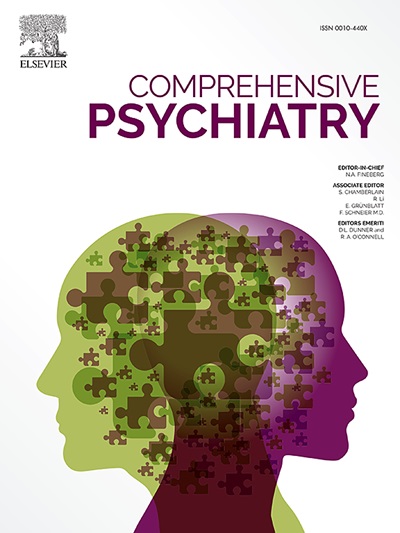Cognitive performance in young adults who endorse a cannabis use disorder
IF 4.2
2区 医学
Q1 PSYCHIATRY
引用次数: 0
Abstract
Rationale
Cannabis use disorder (CUD) is highly prevalent with ∼44 million cases worldwide. CUD has been associated with compulsive use despite experiencing adverse psychosocial outcomes. Such adverse outcomes of CUD have been attributed to altered cognition - a set of mental processes that support the organisation and implementation of goal-directed behaviour. However, the evidence is mixed and limited by methodological issues including inconsistent assessment of CUD and metrics of cannabis use.
Objective/Methods
This study examined distinct domains of cognition (i.e., executive function, working memory, episodic memory, verbal reasoning, attention, IQ) in 115 participants aged 18.5 to 32.5 years. We compared performance between 83 participants who endorsed a CUD and 32 controls. We also explored whether the level of problematic cannabis use, and cannabis grams/past month was associated with cognition in CUD. All analyses accounted for alcohol/nicotine use and trait anxiety.
Results
CUD compared to control participants showed significantly lower IQ, with a strong effect size (p < .001, d = 0.862), which was driven by lower verbal IQ, and survived adjusting for education years. There were no other significant effects of group or associations between cognition, level of problematic cannabis use, or dosage.
Conclusions
Altered cognition in young adults who endorse a CUD may be specific to verbal IQ. Future work is required to confirm whether these findings generalise to CUD samples across the lifespan, including the most vulnerable individuals with a CUD who are seeking or receiving treatment and that endorse comorbid psychopathologies.
大麻使用障碍的年轻人的认知表现
理性大麻使用障碍(CUD)非常普遍,全世界约有4400万例。尽管经历了不良的社会心理后果,但CUD与强迫性使用有关。CUD的这些不良后果被归因于认知的改变——一套支持目标导向行为的组织和实施的心理过程。然而,证据是混杂的,并受到方法学问题的限制,包括对CUD和大麻使用指标的评估不一致。目的/方法本研究考察了115名年龄在18.5岁至32.5岁之间的参与者的不同认知领域(即执行功能、工作记忆、情景记忆、言语推理、注意力、智商)。我们比较了83名接受CUD治疗的参与者和32名对照组的表现。我们还探讨了有问题的大麻使用水平和大麻克数/过去一个月是否与CUD的认知有关。所有的分析都说明了酒精/尼古丁的使用和特质焦虑。结果与对照组相比,cud组受试者的智商显著降低,且存在较强的效应量(p <;.001, d = 0.862),由较低的语言智商驱动,并在调整教育年限后存活。认知、问题大麻使用水平或剂量之间没有其他显著的群体影响或关联。结论年轻成人的认知障碍可能与语言智商有关。未来的工作需要证实这些发现是否适用于整个生命周期的CUD样本,包括那些正在寻求或接受治疗的最脆弱的CUD个体,以及那些认可共病精神病理的个体。
本文章由计算机程序翻译,如有差异,请以英文原文为准。
求助全文
约1分钟内获得全文
求助全文
来源期刊

Comprehensive psychiatry
医学-精神病学
CiteScore
12.50
自引率
1.40%
发文量
64
审稿时长
29 days
期刊介绍:
"Comprehensive Psychiatry" is an open access, peer-reviewed journal dedicated to the field of psychiatry and mental health. Its primary mission is to share the latest advancements in knowledge to enhance patient care and deepen the understanding of mental illnesses. The journal is supported by a diverse team of international editors and peer reviewers, ensuring the publication of high-quality research with a strong focus on clinical relevance and the implications for psychopathology.
"Comprehensive Psychiatry" encourages authors to present their research in an accessible manner, facilitating engagement with clinicians, policymakers, and the broader public. By embracing an open access policy, the journal aims to maximize the global impact of its content, making it readily available to a wide audience and fostering scientific collaboration and public awareness beyond the traditional academic community. This approach is designed to promote a more inclusive and informed dialogue on mental health, contributing to the overall progress in the field.
 求助内容:
求助内容: 应助结果提醒方式:
应助结果提醒方式:


